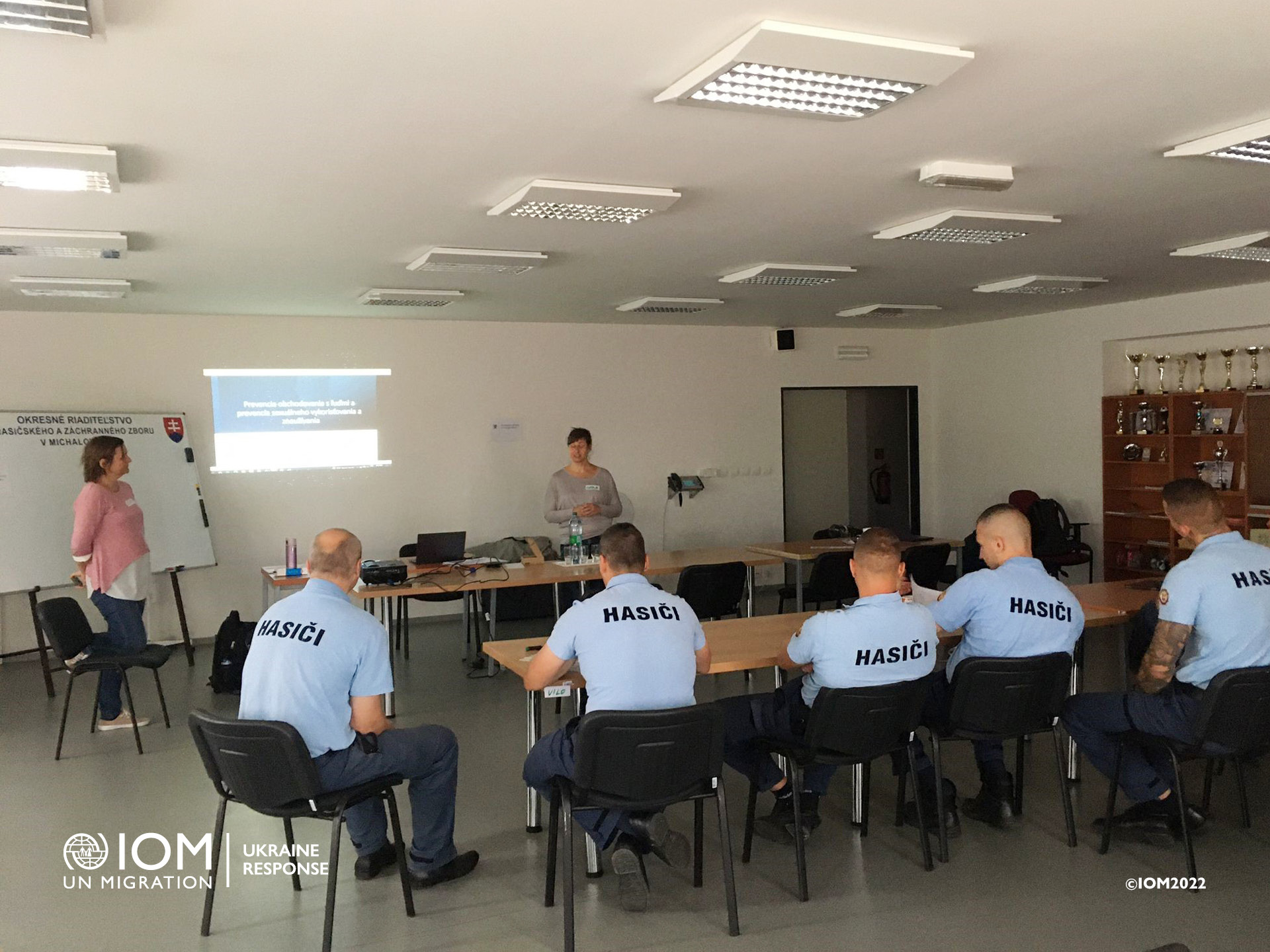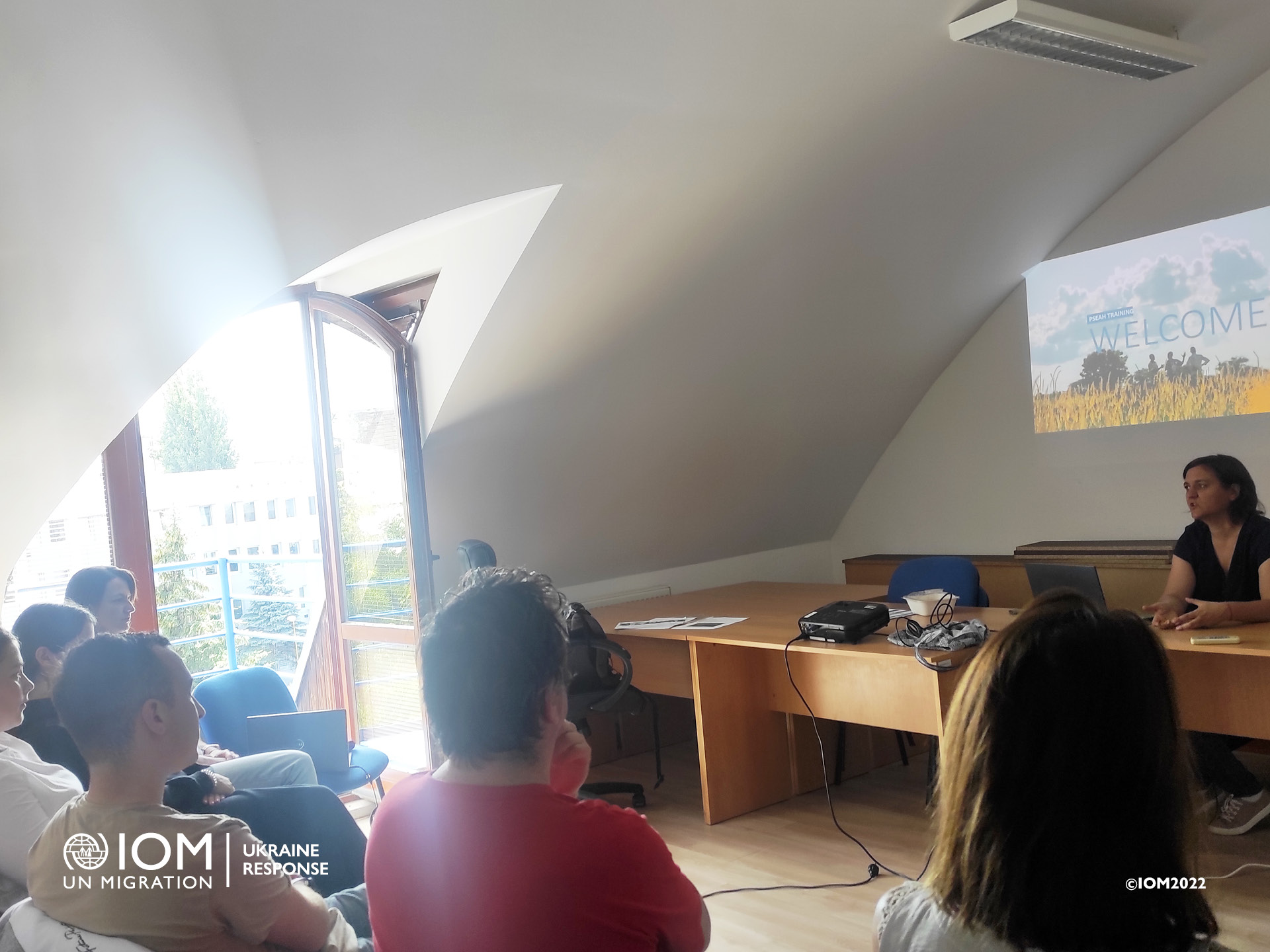Tento článok je publikovaný len v anglickom jazyku.
From 11 to 14 July 2022 in Kosice, Michalovce, Presov and in Poprad, IOM conducted combined trainings on Counter-Trafficking and Prevention of Sexual Exploitation and Abuse (PSEA) for 68 frontline workers – members of the District Directorate of the Fire and Rescue Service in these cities.

Participants of PSEA trainings for Fire and Rescue Service found these training sessions important and useful. Photo © International Organization for Migration (IOM) 2022.
The trainings focused on raising awareness about human trafficking – when, where and why it happens, what are the most common myths about human trafficking, how to recognize risky situations that occur at borders. In addition, participants learnt how to support safe travel of people coming from Ukraine, and what to do and where to turn if they meet a victim of human trafficking.
The second part was dedicated to the PSEA topic. Members of Fire and Rescue Service appreciated that they now better understand the difference between sexual exploitation, abuse and harassment and why they happen. They also learnt how to be vigilant and recognize signs of sexual exploitation and abuse, how not to underestimate the situation in which such threats may arise, where to seek help and how to report cases when they encounter sexual exploitation or abuse.

IOM builds its own capacities in PSEA. Photo © International Organization for Migration (IOM) 2022.
On 11 and 12 July 2022 in Kosice and Michalovce, IOM conducted two other trainings on PSEA for 16 IOM staff members that are in service in large-scale registration centres, hotspots, border points of entry and other dedicated places with IOM assistance.
The participants learned about
- what sexual exploitation and abuse is and why it happens,
- severity of demands that sexual exploitation and abuse places on both victims and offenders,
- how to prevent sexual exploitation and abuse,
- what to do and what not to do if you do not want to sexually exploit or abuse someone,
- how to report cases when they encounter sexual exploitation or abuse.
With support of:

 Slovenčina
Slovenčina
 Українська (Україна)
Українська (Україна)
 English
English
